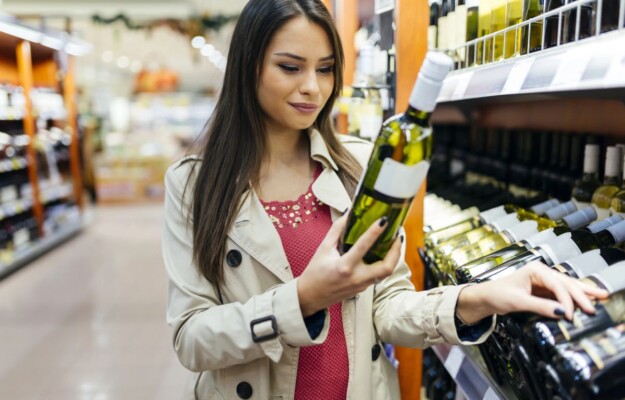It remains an uncertain, variable formula, with fluctuations between one generation and the next, so much so that marketing studies appear increasingly detailed in understanding the habits of wine buyers. What we find written on the label of a bottle is a factor that has no small weight in the choice by the consumer, who is increasingly informed and attentive to the “stamps” that attest to certifications and standards obtained. The work that so many companies have been doing in recent years related to sustainability is seeing its fruits in the purchasing decisions of wine lovers, but although the innovations have found a sure match, the denomination of a wine, whether Docg, Doc or Igt, remains the requirement that gives the most certainty to the average consumer. “The Value of Certifications in the Perception of Producers and Consumers”, the 2024 edition of Nomisma Wine Monitor’s focus, illustrated, yesterday, at Casina Valadier in Rome during the presentation of Valoritalia’s Annual Report, explores, among other aspects, the role of certifications for product competitiveness, new consumer trends, expectations, and the added value of PDO, organic and sustainable wines, confirming how sustainability is a concept that can lead, then, to precise choices. A report that was developed with 127 interviews with Italian wine companies and 1,000 with consumers in Italy, but also focused on the Scandinavian realities of Sweden and Norway.
For 93% of the companies, sustainability is a relevant issue, which is also shown by the steady growth in the number of certifications obtained, from 15% in 2021 to 28% in 2024. As for new consumer trends, companies predict that in the next two years consumers will show increasing interest in sustainable (74%), organic (62%), low-alcohol (46%) wines. All three are part of the trends defined as “certain”, while “likely” trends include sulfite-free (30%), Fair Trade (24%) and vegan (22%). Among the unlikely, on the other hand, low-priced wines are mentioned (although there is a “split” of opinion among companies, ed.), alcohol-free and canned wines.
The importance of certifications appears clear in consumers’ answers regarding the criteria for choosing food products referred to 2024: if low price and promotions are relevant for 82%, 100% Italian product is relevant for 71% (it was 74% in 2023), stable is the value of sustainability and “produced in respect of the environment” at 73%, but with a significant surge from 2020 when it was important for 55% of Italians. The PDO/PGI label is relevant to 70%, much more than the organic label (51%), which has the same value as the known and well-known producer brand (51%).
It is interesting to note the differences between Italians and Nordics (Swedes, Norwegians) when they look at a wine label: 64% of wine consumers in the Belpaese check if the product is Do/Ig versus 33% of Swedes and Norwegians who instead give more importance to the presence of an organic or sustainability label (33% vs. 28%). Regarding the added value given by sustainable wine, 48% of Italians, as the first answer in order of importance, cite the reduced use of pesticides and fertilizers while Scandinavian consumers are more sensitive to a production that respects the ecosystem, the natural cycle, biodiversity and the cultural and landscape/architectural heritage of an area. As for the types of wine that will grow the most in Italy in the next two to three years, Italian consumers and Nordics agree that they will be those with the lightest glass packaging (31% and 24%) but also with the lowest alcohol content (17% and 14%).
Copyright © 2000/2026
Contatti: info@winenews.it
Seguici anche su Twitter: @WineNewsIt
Seguici anche su Facebook: @winenewsit
Questo articolo è tratto dall'archivio di WineNews - Tutti i diritti riservati - Copyright © 2000/2026







































































































































































































